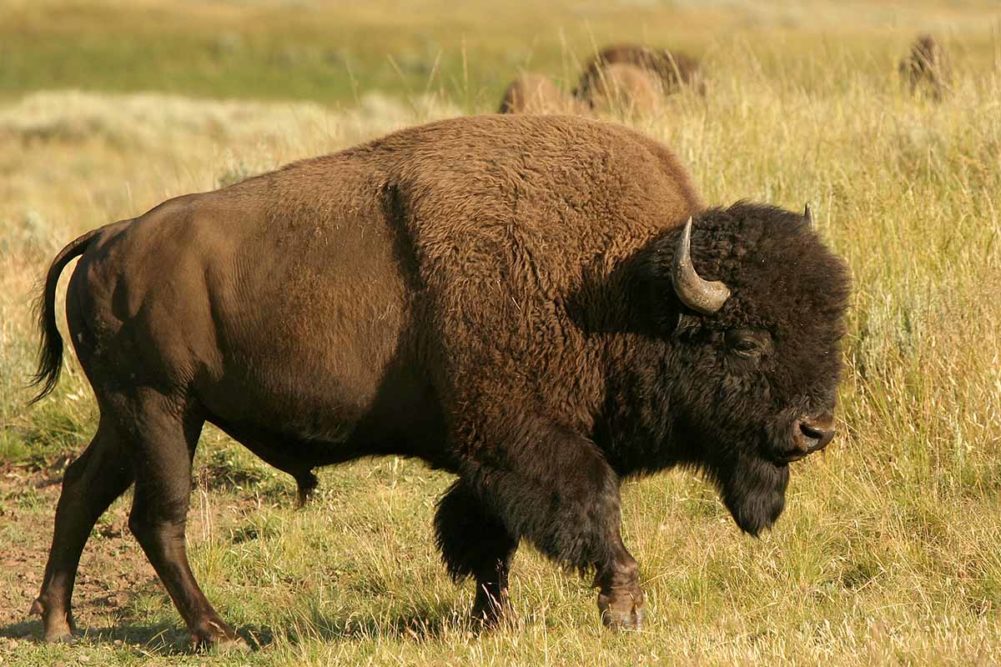NIOBRARA, NEB. — After receiving a $4.8 million grant from the US Department of Agriculture, the Ponca Tribe of Nebraska announced plans to build a meat processing facility.
The facility will be used to harvest, process, manufacture and store buffalo sustainably and in accordance with sacred tribal traditions. Buffalo meat products will be distributed to tribal members across the country, feeding over 5,800 people.
Construction is set to begin in the fall of 2024 in Niobara, Neb., the traditional homelands of the Ponca Tribe of Nebraska. The tribe expects the facility to be complete by the spring of 2025, creating several jobs for tribal members residing in the rural community.
“We greatly appreciate the US Department of Agriculture’s grant to support the Ponca Tribe of Nebraska’s ongoing work to sustainably harvest buffalo from our herd to feed our tribal members across the country,” said Ponca Tribe of Nebraska Chairwoman Candace Schmidt. “This grant will help our tribe advance our mission to provide services, support and nutrition to our tribal members regardless of whether they live within our tribal service area.”
USDA announced grant recipients under the Indigenous Animals Harvesting and Meat Processing Grant Program on June 5. In total, the agency awarded $42.5 million in grants to eight tribal nations, including the Ponca Tribe of Nebraska. Other awarded tribes include:
- The Eastern Band of Cherokee Indians in Cherokee, NC, received a $6.5 million grant to build a center to process animals its members raise and hunt, including cattle, hog, goat, sheep, deer, bear, elk, beaver, boar, rabbit and groundhog. Portions of the meat will be donated and distributed to community members in need, as well as schools, hospitals and other organizations.
- The Passamaquoddy Tribe at Indian Township in Princeton, Maine, received a $4.3 million grant to build an aquaculture facility and use new technology to grow North American eel.
- The Village of Solomon in Nome, Alaska, received a $661,250 grant to build a facility to package, preserve and process more than 60 species of game and fish. The facility will allow members of the tribe to process their own harvested meat, fish and produce on their own lands to sustain themselves, their families and the village.
- The Confederated Salish and Kootenai Tribes in Pablo, Mont., received a $7.7 million grant to build a meat processing facility on the Flathead Indian Reservation with the capacity to process up to 25 animals per week and the possibility to expand in the future.
- The Coquille Indian Tribe in North Bend, Ore., received a $1.6 million grant to build a facility on the Kilkich Reservation for cleaning, processing, storing and preserving traditional foods for ceremonial, cultural and nutritional purposes. The tribe will use the facility to process elk, deer, black bear, salmon, lamprey, clams, mussels, crabs and other species.
- The Confederated Tribes of the Colville Reservation in Nespelem, Wash., received a $16.5 million grant to upgrade and expand its processing facility with new processing, cold storage, freezing, drying, smoking, fileting, packaging and canning units, with the capacity to process up to 200,000 lbs of meat. The new facility will include classroom space to teach traditional fishing, hunting and processing to new generations. A modernized distribution center with upgraded storage and safety equipment will increase employment opportunities, tribal income and enhance food security.
- The St. Croix Chippewa Indians of Wisconsin in Webster, Wis., will use a $456,470 grant to build a centrally located facility so community members can process the animals they harvest, including whitetail deer and fish. The facility also will accommodate sacred seasonal and traditional harvesting activity with community members using non-edible materials such as bones, feathers, antlers and hides for cultural and ceremonial purposes.


